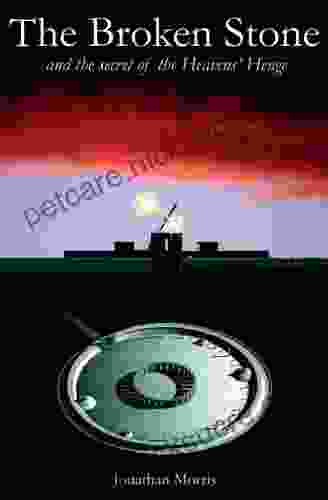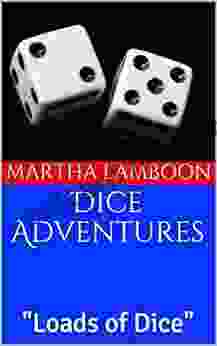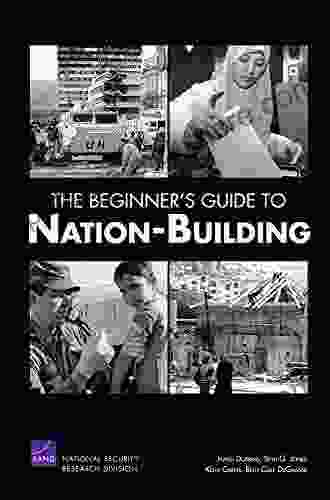Unveiling Your Research Voice: A Comprehensive Guide to Crafting a Distinct Style and Tone

Every researcher aspires to communicate their findings with clarity and impact. Achieving this goal hinges upon developing a distinctive research voice, a unique blend of writing style and tone that effectively conveys your research ideas and insights. This comprehensive guide will delve into the intricacies of finding your research voice, empowering you to craft compelling research narratives that resonate with readers.
The Cornerstones of a Strong Research Voice
Your research voice encompasses two fundamental elements:
5 out of 5
| Language | : | English |
| File size | : | 4484 KB |
| Text-to-Speech | : | Enabled |
| Screen Reader | : | Supported |
| Enhanced typesetting | : | Enabled |
| Word Wise | : | Enabled |
| Print length | : | 118 pages |
- Writing Style: The manner in which you structure sentences, choose words, and organize your thoughts. It reflects your writing personality and can vary from formal to informal, objective to subjective.
- Tone: The emotional undercurrent of your writing, conveying your attitude towards the subject matter and readers. It can range from authoritative to approachable, persuasive to neutral.
Crafting Your Writing Style
Developing your writing style is a gradual process that involves:
- Choosing Clear and Concise Language: Opt for straightforward language that conveys your ideas without ambiguity or jargon. Simplicity and precision enhance comprehension.
- Adopting an Active Voice: Use active verbs to make your writing more engaging and direct. This approach clarifies relationships between subjects and actions.
- Varying Sentence Structure: Mix short and long sentences to create rhythm and interest. Avoid monotony by using transitional words and phrases to smoothly connect ideas.
- Employing Effective Paragraph Structure: Organize your thoughts into coherent paragraphs, each with a clear topic sentence, supporting sentences, and a concluding sentence that summarizes or transitions.
- Citing Credible Sources: Support your arguments with evidence from reputable sources, ensuring academic integrity and credibility.
Eliciting the Right Tone
The tone of your research writing can significantly influence its impact. Consider the following tips:
- Determine Your Purpose: Identify the primary goal of your writing to establish an appropriate tone. For instance, a persuasive essay calls for a more assertive tone than a descriptive report.
- Consider Your Audience: Tailor your tone to resonate with the intended audience. Academic research often demands a formal and objective tone, while outreach materials may require a friendlier approach.
- Maintain Consistency: Strive for consistency in tone throughout your writing to avoid confusing or alienating readers.
- Seek Feedback: Share your writing with trusted colleagues or mentors to gather feedback on the effectiveness of your tone.
Examples of Effective Research Voices
To illustrate the diversity of research voices, consider these excerpts:
- Formal and Objective: "The analysis revealed a statistically significant positive correlation between social media engagement and consumer loyalty."
- Informal and Approachable: "Picture this: a world where your favorite brands are just a few clicks away, offering personalized recommendations and exclusive deals."
- Persuasive and Assertive: "We strongly advocate for increased investment in renewable energy sources to mitigate the urgent threat of climate change."
- Neutral and Informative: "The study explored the potential benefits and challenges associated with the implementation of a new educational program."
Developing Your Research Voice: A Step-by-Step Guide
Embark on the journey of finding your research voice with these steps:
- Reflect on Your Writing: Analyze your current writing to identify areas for improvement.
- Experiment with Different Styles: Try out various writing styles and tones to discover what resonates with you and your audience.
- Seek Mentorship and Feedback: Engage with experienced researchers or writing coaches to receive constructive criticism and guidance.
- Practice Regularly: The key to developing a strong research voice lies in consistent writing practice.
- Stay True to Yourself: While it's important to consider your audience, ultimately, your research voice should reflect your unique perspective and authenticity.
Your research voice is a powerful tool that can amplify the impact of your findings. By understanding its components, crafting a clear writing style, and selecting an appropriate tone, you can effectively communicate your research ideas and insights. Embrace the process of developing your unique voice, allowing it to evolve as you grow as a researcher. With dedication and practice, you can establish a distinct and compelling research voice that commands attention and resonates with readers.
5 out of 5
| Language | : | English |
| File size | : | 4484 KB |
| Text-to-Speech | : | Enabled |
| Screen Reader | : | Supported |
| Enhanced typesetting | : | Enabled |
| Word Wise | : | Enabled |
| Print length | : | 118 pages |
Do you want to contribute by writing guest posts on this blog?
Please contact us and send us a resume of previous articles that you have written.
 Fiction
Fiction Non Fiction
Non Fiction Romance
Romance Mystery
Mystery Thriller
Thriller SciFi
SciFi Fantasy
Fantasy Horror
Horror Biography
Biography Selfhelp
Selfhelp Business
Business History
History Classics
Classics Poetry
Poetry Childrens
Childrens Young Adult
Young Adult Educational
Educational Cooking
Cooking Travel
Travel Lifestyle
Lifestyle Spirituality
Spirituality Health
Health Fitness
Fitness Technology
Technology Science
Science Arts
Arts Crafts
Crafts DIY
DIY Gardening
Gardening Petcare
Petcare Natalia Molina
Natalia Molina Janet Godwin
Janet Godwin Paul Annacone
Paul Annacone Latham Thomas
Latham Thomas Peter Hessler
Peter Hessler Mark Miller
Mark Miller Bud Hasert
Bud Hasert Rosemary Ellen Guiley
Rosemary Ellen Guiley Diana Papaioannou
Diana Papaioannou Sanjay Sarma
Sanjay Sarma Joshua James
Joshua James Mayim Bialik
Mayim Bialik Vaclav Smil
Vaclav Smil Teddy Atlas
Teddy Atlas Chris J Ellis
Chris J Ellis Jeremy Bhandari
Jeremy Bhandari Aaron T Beck
Aaron T Beck Ashley Stanford
Ashley Stanford Richard Pears
Richard Pears Hana Ali
Hana Ali Daniel L Schacter
Daniel L Schacter Joshua G Shifrin
Joshua G Shifrin Gerd Gigerenzer
Gerd Gigerenzer Patricia G Lange
Patricia G Lange Patricia B Mcconnell
Patricia B Mcconnell Perre Coleman Magness
Perre Coleman Magness Manjit Kumar
Manjit Kumar Chris Parsons
Chris Parsons Dorthe Berntsen
Dorthe Berntsen Will Nett
Will Nett D James Benton
D James Benton John Toussaint
John Toussaint Rachael Bell Irving
Rachael Bell Irving Mike Lanza
Mike Lanza Nick Redfern
Nick Redfern Wendy Higgins
Wendy Higgins Jamil Zaki
Jamil Zaki Edward Marston
Edward Marston Morten H Christiansen
Morten H Christiansen Karl Rehn
Karl Rehn 1st Ed 2018 Edition Kindle Edition
1st Ed 2018 Edition Kindle Edition Robert Lomas
Robert Lomas Andy Kirkpatrick
Andy Kirkpatrick Day Schildkret
Day Schildkret Ian Sample
Ian Sample Nathan D Lang Raad
Nathan D Lang Raad Mike Chappell
Mike Chappell Dinah Bucholz
Dinah Bucholz Asti Hustvedt
Asti Hustvedt Leonie Mack
Leonie Mack Modestus Anabaraonye
Modestus Anabaraonye Jesse M Ehrenfeld
Jesse M Ehrenfeld Andrea Olson
Andrea Olson Jamie Whyte
Jamie Whyte Roger Frampton
Roger Frampton Ellie Marney
Ellie Marney Cathy Raubenheimer
Cathy Raubenheimer 1st Ed 2020 Edition Kindle Edition
1st Ed 2020 Edition Kindle Edition David Kahn
David Kahn Sean Fitz Gerald
Sean Fitz Gerald Elaine Heney
Elaine Heney T M Mikita
T M Mikita Burt L Standish
Burt L Standish Matthew Dworak
Matthew Dworak Dr Mike Grevlos
Dr Mike Grevlos Belinia Xenrale
Belinia Xenrale Neil Sagebiel
Neil Sagebiel Pete Magill
Pete Magill Kyler Shumway
Kyler Shumway Dylan Dethier
Dylan Dethier Traci Chee
Traci Chee Doug Degrood
Doug Degrood Randall M Packard
Randall M Packard John T Cacioppo
John T Cacioppo 1st Edition Kindle Edition
1st Edition Kindle Edition Ann Jackson
Ann Jackson Jacob Cohen
Jacob Cohen Adam Rutherford Phd
Adam Rutherford Phd Teri Tom
Teri Tom Daisaku Ikeda
Daisaku Ikeda Anton Angelov
Anton Angelov Bradmd
Bradmd Bruce Chatwin
Bruce Chatwin Gary E Schwartz
Gary E Schwartz Alison Gopnik
Alison Gopnik David Weber
David Weber Graham Priest
Graham Priest Evy Poumpouras
Evy Poumpouras David Roberts
David Roberts Natsuki Takaya
Natsuki Takaya Robert Milner
Robert Milner John S Farnam
John S Farnam Ukay J Ekong
Ukay J Ekong Daniel Todd Gilbert
Daniel Todd Gilbert Michelle Damiani
Michelle Damiani Jack Newfield
Jack Newfield Jay Cassell
Jay Cassell Amita Jassi
Amita Jassi Tim Deroche
Tim Deroche Sophie Kinsella
Sophie Kinsella David Faulkner
David Faulkner Louise Warneford
Louise Warneford Philip Coppens
Philip Coppens Loudell F Snow
Loudell F Snow John Small
John Small Andrew Evans
Andrew Evans J F Tamayo
J F Tamayo Laura Luther
Laura Luther Mike Bender
Mike Bender Arden Rose
Arden Rose Kara Goucher
Kara Goucher Jo Bartlett
Jo Bartlett Lei Wang
Lei Wang Bob Chandler
Bob Chandler Six Sisters Stuff
Six Sisters Stuff Tamonya Sands
Tamonya Sands Charlotte Eliopoulos
Charlotte Eliopoulos Charles Fleming
Charles Fleming Jonathan Tarbox
Jonathan Tarbox Nancy Hendrickson
Nancy Hendrickson Joseph Mercola
Joseph Mercola Julie Angus
Julie Angus Jason Sumner
Jason Sumner Alan Naldrett
Alan Naldrett Rollo Tomassi
Rollo Tomassi Hafsah Faizal
Hafsah Faizal David Barrett
David Barrett Webb Chiles
Webb Chiles Clifford E Trafzer
Clifford E Trafzer Carmen Acevedo Butcher
Carmen Acevedo Butcher Jane Yeadon
Jane Yeadon Elizabeth Heavey
Elizabeth Heavey R J Vickers
R J Vickers Jacob Stegenga
Jacob Stegenga Ron Larson
Ron Larson Eric Sevareid
Eric Sevareid Larry Krieger
Larry Krieger Elizabeth Field
Elizabeth Field Lori Bregman
Lori Bregman Botros Rizk
Botros Rizk Philip Moore
Philip Moore Lisa R Cohen
Lisa R Cohen Suzy Hopkins
Suzy Hopkins Felicia Pizzonia
Felicia Pizzonia Duncan Hamilton
Duncan Hamilton Claire Dunn
Claire Dunn Ronald York
Ronald York Taylor Fontenot
Taylor Fontenot M Susan Lindee
M Susan Lindee Fletcher Dunn
Fletcher Dunn Michael Clarke
Michael Clarke Jandy Nelson
Jandy Nelson Felicity Cloake
Felicity Cloake Amanda Kingloff
Amanda Kingloff Monte Burch
Monte Burch Elise Hennessy
Elise Hennessy David I Spivak
David I Spivak Scott Matthews
Scott Matthews Ewan Mcgregor
Ewan Mcgregor Hannu Rajaniemi
Hannu Rajaniemi Larry A Yff
Larry A Yff Phil Mickelson
Phil Mickelson Shane Jones
Shane Jones Larry Kaniut
Larry Kaniut Piotr Naskrecki
Piotr Naskrecki Diane Vaughan
Diane Vaughan Dan Robson
Dan Robson Stacey Steinberg
Stacey Steinberg Kim Dwinell
Kim Dwinell Christopher Carter
Christopher Carter David Wolff
David Wolff Tadahiko Mizuno
Tadahiko Mizuno Mambo Chita Tann
Mambo Chita Tann Steve Crawford
Steve Crawford Laura Prepon
Laura Prepon Kajal Gupta
Kajal Gupta Egerton Ryerson Young
Egerton Ryerson Young Guy Harrison
Guy Harrison Lech A Grzelak
Lech A Grzelak M L Buchman
M L Buchman Brian Meier
Brian Meier Disha Experts
Disha Experts Pam Vredevelt
Pam Vredevelt Sharon Wilkins
Sharon Wilkins Robert Oerter
Robert Oerter Jim Baggott
Jim Baggott James Ragonnet
James Ragonnet Daniel H Pink
Daniel H Pink Raymond Arsenault
Raymond Arsenault James M Tabor
James M Tabor Susan Ludington Hoe
Susan Ludington Hoe Mark Seidenberg
Mark Seidenberg Jacqueline Corricelli
Jacqueline Corricelli Mara Rutherford
Mara Rutherford Darril Fosty
Darril Fosty Michael Borenstein
Michael Borenstein Robyn Ryle
Robyn Ryle Kev Reynolds
Kev Reynolds Yaron Seidman
Yaron Seidman Raichelle Carter
Raichelle Carter Samantha Boardman
Samantha Boardman Orji Onyebuchi
Orji Onyebuchi Lisa Marasco
Lisa Marasco Julie K Briggs
Julie K Briggs Rebecca Solnit
Rebecca Solnit John L Havlin
John L Havlin Sandra Uwiringiyimana
Sandra Uwiringiyimana Sarah Thompson
Sarah Thompson Robyn Perry Worthington
Robyn Perry Worthington Holly Hook
Holly Hook Shane Benzie
Shane Benzie 1st Ed 2021 Edition Kindle Edition
1st Ed 2021 Edition Kindle Edition Frank Wilczek
Frank Wilczek Marva Collins
Marva Collins Carol Matsuzaki
Carol Matsuzaki Leona S Aiken
Leona S Aiken Rachel Reed
Rachel Reed Os Guinness
Os Guinness Stephen Bodio
Stephen Bodio Alan Greenfield
Alan Greenfield Nageshwar Sah
Nageshwar Sah Karyn Garvin
Karyn Garvin H Lee Jones
H Lee Jones David Clark
David Clark Judith Warner
Judith Warner Richard E Nisbett
Richard E Nisbett Christine E Sleeter
Christine E Sleeter Otto Toeplitz
Otto Toeplitz Linda L French
Linda L French Timothy Dickeson
Timothy Dickeson Wabun Wind
Wabun Wind Xiufeng Liu
Xiufeng Liu Sara Snow
Sara Snow Rana Conway
Rana Conway Intelligent
Intelligent Nicole Libin Phd
Nicole Libin Phd Jareth Tempest
Jareth Tempest Christian Straube
Christian Straube Timothy R Pauketat
Timothy R Pauketat Gary M Schultheis
Gary M Schultheis Janice K Ledford
Janice K Ledford Alexandra Kenin
Alexandra Kenin Keshia A Case
Keshia A Case Franz Boas
Franz Boas Marisa Kanter
Marisa Kanter Alice Waters
Alice Waters Michele Smith
Michele Smith Nicholas J Saunders
Nicholas J Saunders Jay Carter
Jay Carter Gail Buckland
Gail Buckland Spire Study System
Spire Study System Joachim Rossberg
Joachim Rossberg Helen Garabedian
Helen Garabedian Bilingual Edition Kindle Edition
Bilingual Edition Kindle Edition Dana Trentini
Dana Trentini Irene Spencer
Irene Spencer Michael T Mcdermott
Michael T Mcdermott Peter Lightbown
Peter Lightbown Tim Hollister
Tim Hollister Harvey Penick
Harvey Penick Chris Stringer
Chris Stringer Tillie Cole
Tillie Cole Paul Johnson
Paul Johnson David Fine
David Fine Wolfgang Jank
Wolfgang Jank Lindsey Bliss
Lindsey Bliss George Mount
George Mount Kay Kennedy
Kay Kennedy Mildred Council
Mildred Council Mae Ilami Onyekwum
Mae Ilami Onyekwum Jeanne Oliver
Jeanne Oliver Saroo Brierley
Saroo Brierley Didier Reiss
Didier Reiss Brent Warner
Brent Warner Paul A Laviolette
Paul A Laviolette S K Gupta
S K Gupta Pat Manley
Pat Manley Raven Morgaine
Raven Morgaine Chad Waterbury
Chad Waterbury Stephen C Meyer
Stephen C Meyer Mark Lattanzi
Mark Lattanzi Joshua Darwin
Joshua Darwin Robin Hobb
Robin Hobb Erin Miller
Erin Miller Alexandre Paiva
Alexandre Paiva Brad Myers
Brad Myers Samuel Owedyk
Samuel Owedyk Isa Herrera
Isa Herrera Paul Gaskell
Paul Gaskell Kaoru Sinozaki
Kaoru Sinozaki Michael Ross
Michael Ross Diane H Tracey
Diane H Tracey Kathleen Buckstaff
Kathleen Buckstaff Lawrence T Friedhoff
Lawrence T Friedhoff Susan Alcorn
Susan Alcorn Guillermo Gonzalez
Guillermo Gonzalez Wendy Sullivan
Wendy Sullivan Julia Rutland
Julia Rutland 15th Edition Kindle Edition
15th Edition Kindle Edition Sarah A Reinhard
Sarah A Reinhard Tim Powers
Tim Powers Editions La Plume D Eros
Editions La Plume D Eros Sally A Lipsky
Sally A Lipsky 6th Edition Kindle Edition
6th Edition Kindle Edition Christa Mackinnon
Christa Mackinnon Florence Nightingale
Florence Nightingale Caroline Fidanza
Caroline Fidanza Jeremy Lent
Jeremy Lent Anthony Burgess
Anthony Burgess Amanda Claridge
Amanda Claridge Lenora Chu
Lenora Chu Ali Psiuk
Ali Psiuk Robert Lanza
Robert Lanza Alison Pray
Alison Pray Arny Alberts
Arny Alberts Grace Liu
Grace Liu Mindfulness Hypnosis Academy
Mindfulness Hypnosis Academy Katie Singer
Katie Singer Taran Matharu
Taran Matharu Matthew Harffy
Matthew Harffy Peter Heller
Peter Heller Eryk Lewinson
Eryk Lewinson Andrea Sfiligoi
Andrea Sfiligoi Travis Senzaki
Travis Senzaki Kiley Reid
Kiley Reid Sarah A Clark
Sarah A Clark Stanley Vast
Stanley Vast Lh Press
Lh Press Philippa Langley
Philippa Langley Geoff Powter
Geoff Powter Jon Young
Jon Young Irina Szmelskyj
Irina Szmelskyj Matthew B Crawford
Matthew B Crawford Launi Meili
Launi Meili Zachary Willey
Zachary Willey Bryn Huntpalmer
Bryn Huntpalmer Megan Sloan
Megan Sloan Berkshire K Greene
Berkshire K Greene Kathy Farrokhzad
Kathy Farrokhzad Ejike Ifeanyichukwu
Ejike Ifeanyichukwu Jill Heinerth
Jill Heinerth Christian Fader
Christian Fader Naomi Moriyama
Naomi Moriyama 1st Ed 2019 Edition Kindle Edition
1st Ed 2019 Edition Kindle Edition Brent E Turvey
Brent E Turvey Leslie Anthony
Leslie Anthony Ashlee Kasten
Ashlee Kasten Dk Publishing
Dk Publishing Edward A Bell
Edward A Bell Anthony Haynes
Anthony Haynes Joyce L Vedral
Joyce L Vedral Jerome Rand
Jerome Rand Glenda Green
Glenda Green Bob Allcorn
Bob Allcorn Hesam Nemounehkhah
Hesam Nemounehkhah Helen Batten
Helen Batten Estelle Maskame
Estelle Maskame Broccoli Lion
Broccoli Lion Jeffrey S Saltz
Jeffrey S Saltz Phyllis Franklin
Phyllis Franklin Alex Hibbert
Alex Hibbert Liz Thomas
Liz Thomas Steve Garratt
Steve Garratt Harold Simmons
Harold Simmons Geraint Thomas
Geraint Thomas Lani Forbes
Lani Forbes Nick Morrison
Nick Morrison The Lodge Company
The Lodge Company Tyler Lansford
Tyler Lansford Ivor Horton
Ivor Horton Jacob Gardner
Jacob Gardner Robert Clifton Robinson
Robert Clifton Robinson Mike Barrett
Mike Barrett Ivana Bajic Hajdukovic
Ivana Bajic Hajdukovic Lou Nanne
Lou Nanne Emily Vikre
Emily Vikre Michael R Canfield
Michael R Canfield Lars Anderson
Lars Anderson Jonathan Vaughters
Jonathan Vaughters Russ Moorhouse
Russ Moorhouse Peter Burns
Peter Burns Ben Coates
Ben Coates My Daily German
My Daily German Mark Vee John
Mark Vee John Karen L Cox
Karen L Cox Valerie Nash Chang
Valerie Nash Chang Mary Douglas
Mary Douglas Aron Ralston
Aron Ralston Lynne Tolley
Lynne Tolley Deborah Spungen
Deborah Spungen Thomas Lickona
Thomas Lickona Evelyn Raab
Evelyn Raab Nicole Zasowski
Nicole Zasowski Gerald Beaudry
Gerald Beaudry R K Agarwal
R K Agarwal Jamie Dorobek
Jamie Dorobek Jean Yves Leloup
Jean Yves Leloup Ben Rothenberg
Ben Rothenberg Kim Mack Rosenberg
Kim Mack Rosenberg Deborah T Goldberg
Deborah T Goldberg Desiree Trattles
Desiree Trattles Jeff Benedict
Jeff Benedict Brian Fagan
Brian Fagan Anne Polli
Anne Polli Beryl Beare
Beryl Beare Harry Fisch
Harry Fisch Leonard Sax
Leonard Sax Kristen Thrasher
Kristen Thrasher Pam Jarvis
Pam Jarvis Norman Delgado
Norman Delgado Alan Agresti
Alan Agresti House Of Talent
House Of Talent Michael Schiavone
Michael Schiavone Vikas Bhushan
Vikas Bhushan Amanda Brooks
Amanda Brooks Andrew Solomon
Andrew Solomon Robert Irwin
Robert Irwin Lavinia Collins
Lavinia Collins Bruce Brown
Bruce Brown Clark A Campbell
Clark A Campbell Livy
Livy Rick Barba
Rick Barba Maureen Dempsey
Maureen Dempsey Sarah Lawton
Sarah Lawton R I Chalmers
R I Chalmers Jacqueline Carey
Jacqueline Carey James Proctor
James Proctor Paul Freedman
Paul Freedman S Elia
S Elia Alexandra Witze
Alexandra Witze Keith Bowden
Keith Bowden Christopher Hook
Christopher Hook Janice Hudson
Janice Hudson Derald Wing Sue
Derald Wing Sue Robyn Hawkins
Robyn Hawkins Sharon Copeland
Sharon Copeland John Vigor
John Vigor Rafael Nadal
Rafael Nadal 1st Ed 2017 Edition Kindle Edition
1st Ed 2017 Edition Kindle Edition Ian Stewart
Ian Stewart Ray Mcnulty
Ray Mcnulty Nancy B Rapoport
Nancy B Rapoport Ann Olga Koloski Ostrow
Ann Olga Koloski Ostrow Terry Pratchett
Terry Pratchett Stephen R Lawhead
Stephen R Lawhead Francis L Macrina
Francis L Macrina Heather A Smith
Heather A Smith Rebekah Dodson
Rebekah Dodson Karina Manta
Karina Manta Craig Clapper
Craig Clapper Cathy Hester Seckman
Cathy Hester Seckman Jean Pierre De Caussade
Jean Pierre De Caussade Denis Dwyer
Denis Dwyer Joanne Calderwood
Joanne Calderwood Adam Cesare
Adam Cesare Carola Hein
Carola Hein Dierdre Wolownick Honnold
Dierdre Wolownick Honnold Skylar Kergil
Skylar Kergil Mark Santino
Mark Santino James Adams
James Adams Forrest Willett
Forrest Willett Ric Conrad
Ric Conrad Geoff Johns
Geoff Johns Emily Chetkowski
Emily Chetkowski 1st Ed 2016 Edition Kindle Edition
1st Ed 2016 Edition Kindle Edition Maia Motley
Maia Motley Janet Malcolm
Janet Malcolm Daniel Scott
Daniel Scott Fern Nichols
Fern Nichols Seth Tucker
Seth Tucker Paul Haddad
Paul Haddad Alice Roberts
Alice Roberts Erfun Geula
Erfun Geula Elizabeth Becker
Elizabeth Becker Derek Rowntree
Derek Rowntree Jody Morse
Jody Morse Shalini Shankar
Shalini Shankar Knowledge Tree
Knowledge Tree Joan Ryan
Joan Ryan George Grimm
George Grimm Gary Dierking
Gary Dierking Adeline Yen Mah
Adeline Yen Mah Bill Douglas
Bill Douglas Barry Ord Clarke
Barry Ord Clarke Sara Saedi
Sara Saedi William E Glassley
William E Glassley Carol Lynn Mckibben
Carol Lynn Mckibben Bill Rodgers
Bill Rodgers Gill Stewart
Gill Stewart Monica Beyer
Monica Beyer Robert Chu
Robert Chu Ruth Ware
Ruth Ware Michael Archer
Michael Archer Chip Ingram
Chip Ingram Karen Kovacs
Karen Kovacs Richard Hofstadter
Richard Hofstadter Tom Chivers
Tom Chivers Cal Peternell
Cal Peternell
Light bulbAdvertise smarter! Our strategic ad space ensures maximum exposure. Reserve your spot today!
 Matthew WardFollow ·19k
Matthew WardFollow ·19k Bernard PowellFollow ·19.4k
Bernard PowellFollow ·19.4k Ernest HemingwayFollow ·17.4k
Ernest HemingwayFollow ·17.4k Enrique BlairFollow ·7.8k
Enrique BlairFollow ·7.8k Camden MitchellFollow ·9.8k
Camden MitchellFollow ·9.8k Rick NelsonFollow ·8k
Rick NelsonFollow ·8k Hassan CoxFollow ·15k
Hassan CoxFollow ·15k Casey BellFollow ·18.8k
Casey BellFollow ·18.8k

 Marcus Bell
Marcus BellThe Essential Guide to Angler Quick Reference: Your...
Embark on an unforgettable...
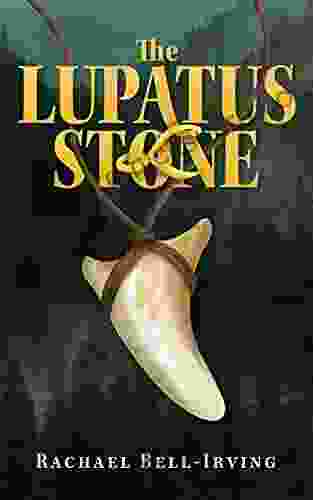
 Juan Butler
Juan ButlerThe Lupatus Stone: A Wicked Conjuring
The Lupatus Stone is a...

 Alvin Bell
Alvin BellUnveiling the Enchanting Memoirs of Lady Hyegyong: A...
In the annals of Korean...

 DeShawn Powell
DeShawn PowellAMC's Best Day Hikes in the Berkshires: Explore Majestic...
The Berkshires, a...
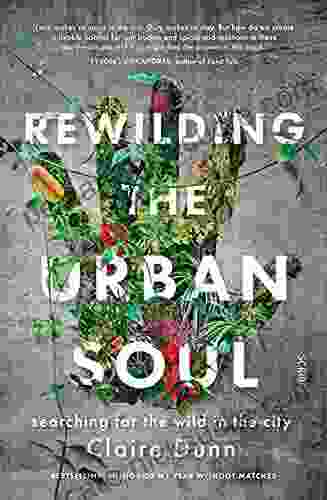
 Clark Campbell
Clark CampbellRewilding The Urban Soul: Reconnecting with Nature in the...
In the heart of sprawling metropolises, where...

 Cruz Simmons
Cruz SimmonsHow to Find Your Family History on a Genealogy Website: A...
Delving into the...
5 out of 5
| Language | : | English |
| File size | : | 4484 KB |
| Text-to-Speech | : | Enabled |
| Screen Reader | : | Supported |
| Enhanced typesetting | : | Enabled |
| Word Wise | : | Enabled |
| Print length | : | 118 pages |





